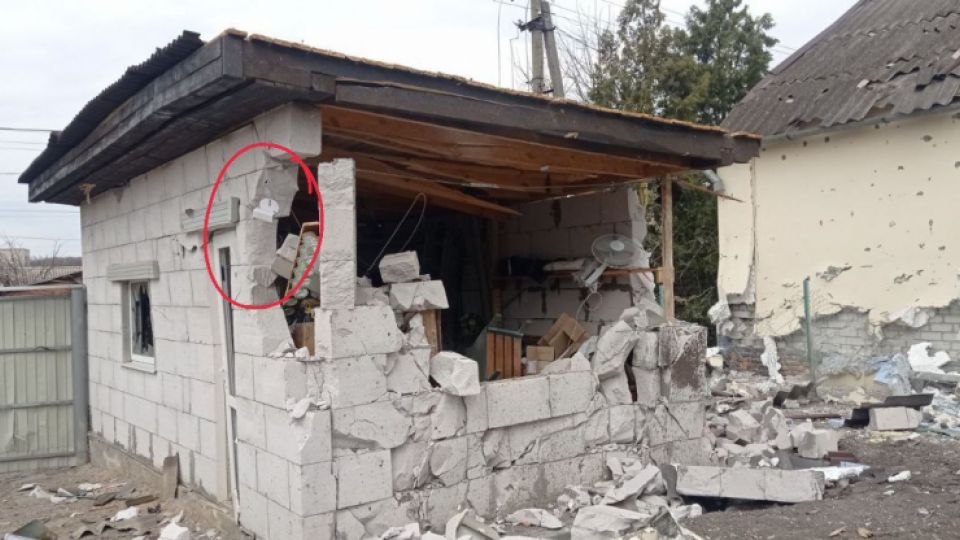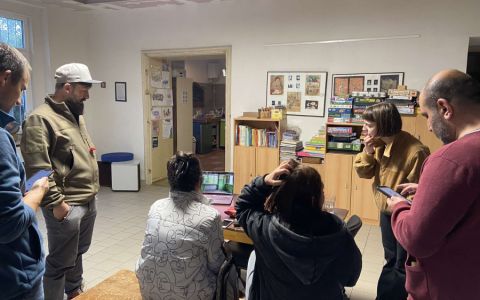Although the Russian invasion has fundamentally disrupted civilian air monitoring in Ukraine, the measuring stations have also gained a new use. The EcoCity network operated by our Ukrainian partners serves as an alert system in case of explosions, fires, and industrial accidents. Unfortunately, many stations were damaged during the war. But there are also stories with happy endings. An example is the story of the station in Kharkiv, which “survived” shelling.
Valeriy Krukovets only moved with his family to his new house near Kharkiv in the autumn of 2021 and installed an air quality monitoring station soon after. Kharkiv is an industrial city already suffering from high pollution levels before the invasion. So it was important for Valeriy to know what air his family, especially his young son, was breathing.
When the Russian army invaded Ukraine, the family was evacuated from Kharkiv to the Dnipropetrovsk region, but unfortunately, their Kharkiv home was hit by shelling in April. Valeriy then managed to get into the city to see the house’s condition. The sight of the former home was very sad - broken roof, broken window glass, broken doors. He was seeing what of his possessions he could salvage and take away. In doing so, he noticed a monitoring station that hung damaged and charred on the damaged garage wall but had survived.
He took it with him and contacted his colleagues at EcoCity. They cleaned the equipment, inspected it, and replaced the burnt-out power supply. The station was reinstalled and commissioned and now provides information about air pollution and potential threats at the new location. Valeriy’s family lives about thirty kilometers from the Zaporizhzhia nuclear power plant, which has been repeatedly shelled. Still, Valeriy is calm: “I work remotely, and my family is nearby. We are alive, and that's good. We believe in victory.”
State monitoring of air pollution is virtually non-existent in Ukraine, so now, citizens, municipalities, and authorities are using data from the citizen network as an essential source of information. The station mentioned above is part of this network. “It is a symbol of our project - despite the difficulties, we continue our work and believe in a happy ending. Currently, EcoCity operates approximately 200 operational monitoring stations. We will continue to renew and further develop citizen monitoring to give people relevant and trustworthy information on air quality. This is important not only for their lives during and after the war so that Ukraine can take further steps towards a greener future,” concludes Marcela Černochová, Arnika’s Ukraine Project Coordinator.








